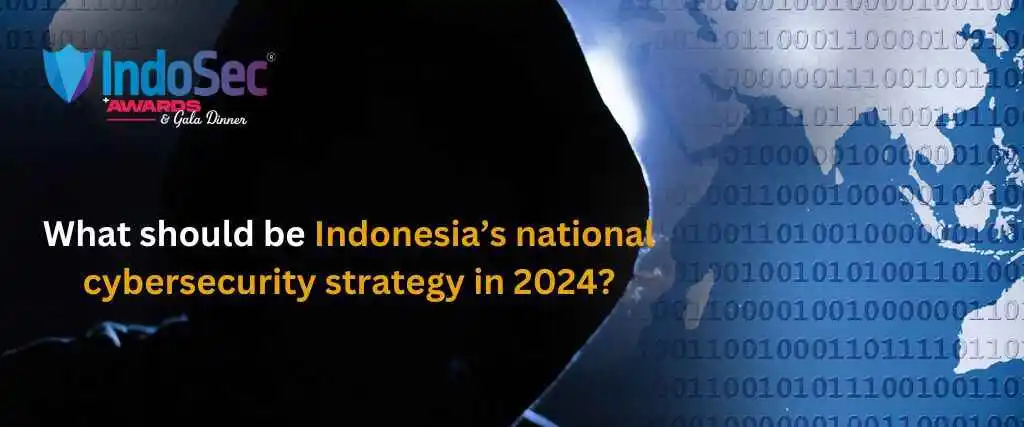
While Indonesia has started its ascent towards becoming one of the most competitive nations in this dynamic digital era, it’s not without facing a daunting state of cybercrime. Needless to say, housing 212.9 million internet users in the world with a fast-growing IT infrastructure is further adding to the country’s vulnerability.
On the brighter side, the above development has also opened huge opportunities under the cybersecurity landscape. In that light, it is more than essential for the archipelago to integrate a comprehensive national cybersecurity strategy in 2024. This article navigates through the key components that should be incorporated into Indonesia’s national cybersecurity strategy in 2024 to enable a robust defence for the country’s digital realm.
1. Upgrading Indonesia’s cyber infrastructure
While a cybersecurity strategy should be inclusive and include each domain of every organisation, upgrading the country’s cyber infrastructure will form the much-needed basis for all. First and foremost, Indonesia should prioritize safeguarding its critical infostructure, like government networks, financial systems, and communication channels.
This whole gamut of activities should involve routine cyber drills, adopting cutting-edge solutions to stay ahead of the criminals, implementing best practices and a lot more. Also, one cannot ignore the collaboration with the private sector as upgrading the cyber infrastructure requires a collective effort.
2. Boosting cybersecurity knowledge and training
Any kind of change, whether big or small, starts from the citizens. The archipelago must focus on conducting cybersecurity awareness programs and training the masses to be better equipped during adverse situations. Nationwide awareness campaigns could be a key here for promoting a robust culture of cybersecurity and safer online protocols. Moreover, Indonesia should also consider involving academia to instil the subject of cybersecurity into the curriculums, whilst offering specialized training programs for professionals.
3. Establishing Robust Legal and Regulatory Frameworks
Regulatory framework stand as the strategic gateway that supports the enforcement of stringent cybersecurity measures and at the same time restricts the activities of cybercriminals. In that light, it is paramount to update the country’s cybersecurity laws to mitigate the growing state of threats.
While Indonesia finally passed its first data protection law in September 2022 after following a prolonged trail of bureaucratic rivalry and overlapping mandates, it should also define clear guidelines for incident reporting and cybercrime prosecution. Furthermore, the presence of a central authority on cybersecurity will go a long way while overseeing the enforcement of these regulations.
4. Promoting Public-Private Partnerships
Cybersecurity is a shared responsibility that requires collaboration between the public and private sectors. Encouraging public-private partnerships can facilitate the exchange of information, resources, and expertise needed to combat cyber threats. The government can work with private companies to develop threat intelligence sharing mechanisms, joint cybersecurity initiatives, and incident response plans. This collaborative approach can enhance the overall resilience of the nation’s cyber ecosystem.
5. Fostering International Collaboration
Cyber threats are not confined by geographical boundaries; hence, international collaboration should be seen as a key aspect of Indonesia’s national cybersecurity strategy in 2024. Indonesia should actively participate in global cybersecurity forums and establish bilateral and multilateral agreements with other countries to share threat intelligence and best practices. Engaging in international cybersecurity exercises and adopting international standards can help Indonesia stay ahead of emerging threats and enhance its cybersecurity capabilities.
6. Investing in Research and Development
Innovation is key to staying ahead in the cybersecurity domain. Indonesia should invest in research and development to explore new technologies and methodologies for combating cyber threats. Supporting local cybersecurity startups, collaborating with academic institutions, and fostering a culture of innovation can drive the development of advanced cybersecurity solutions tailored to the country’s unique needs.
Conclusion:
As Indonesia continues to embrace digital transformation, the importance of a robust national cybersecurity strategy in 2024 cannot be ignored. By strengthening cyber infrastructure, enhancing awareness and education, establishing robust legal frameworks, promoting public-private partnerships, fostering international collaboration, and investing in research and development, Indonesia can build a resilient cybersecurity ecosystem. This proactive approach will not only protect the nation’s digital assets but also ensure a secure and prosperous future in the digital age. In crafting and implementing its national cybersecurity strategy in 2024, Indonesia has the opportunity to set a benchmark for other nations and become a leader in the global cybersecurity landscape.